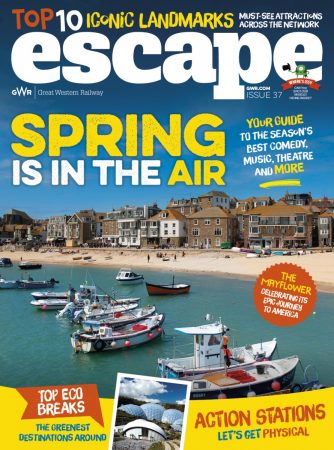
In search of a new world: Mayflower 400
This year marks the 400th anniversary of the Mayflower setting sail from Plymouth to America. Discover the true story behind the pilgrims’ epic voyage and explore some of the top events commemorating the journey.
On 6 September 1620, the Mayflower set sail from Plymouth harbour, on course for Virginia in the ‘New World’. The ship’s passengers, who were in the main religious dissidents fleeing the tyrannies of Jacobean England, were tightly packed together between decks.
Little did they know that the voyage would become one of the most famous crossings of all time, their achievements celebrated throughout America during annual Thanksgiving commemorations.
The journey itself was a punishing one. Several passengers onboard died, with many others developing signs of scurvy, including loose teeth and bleeding gums, brought on by a lack of fresh fruit and vegetables.
For 65 days the Mayflower lurched over the Atlantic, rocked by storms and headwinds. It was 9 November before the pilgrims reached the coast of New England, hundreds of miles north of their intended destination – and just in time for what would prove to be a harsh winter.
The area around Cape Cod Bay, where the settlers alighted, had an eerie emptiness about it. The remaining locals soon made themselves known to the settlers.
One Native American, named Squanto, would prove invaluable to pilgrim-native people relations. A member of the Patuxet tribe, he was kidnapped by the Spanish before travelling to England, living for a time in the Cornhill area of London.
Now returned to his homeland, Squanto spoke English and was essential in liaising between the indigenous population and the pilgrims. He taught the settlers the local method of growing crops – using fish as fertiliser – which proved invaluable to the English, who were not familiar with cultivation in such challenging conditions.
Come the following harvest, the pilgrims had grown their first crops and made a pact with the Native Americans. It was time to celebrate. Europeans and Native Americans gathered and enjoyed the first harvest – an occasion that is celebrated every Thanksgiving in America.
Sadly, the story doesn’t end there. By the next generation, the relationship had soured and war broke out between the Europeans and the native population.
For a brief time, and to their mutual benefit, there was a closeness between the pilgrims and the natives. Their friendship promised a way forward, and it is this potential that should be celebrated today.
Plymouth
Mayflower 400: Legend and Legacy
Opening in spring
The Box is a brand new redevelopment that ties together former museum and library buildings in the heart of Plymouth with St Luke’s Church and a new piazza.
The inaugural exhibition at The Box will explore the origins of the Mayflower journey, its legacy and the way in which it has been commemorated through generations, including the real Native American story. On display will be everything from the toys that children played with onboard to the equipment the seafarers used.
plymhearts.org/thebox
Mayflower Week
14-20 September
Join a week of activities centred around the anniversary of the embarkation of the Mayflower. There will be a visit from the Matthew, a replica 15th-century tall ship, daily fly-bys and a triathlon.
Representatives from the UK, US, Netherlands and the Wampanoag tribe will all join the celebrations on 16 September for the Mayflower Ceremony, which will include a 1,000-person choir performing a brand new piece of music.
Finally, the Mayflower Muster, taking place at Plymouth Sound on 19 and 20 September, will celebrate the city as an important naval base, including a range of family activities.
Southampton
Southampton Mayflower Maritime Festival
14-16 August
Enjoy three days of cultural, heritage and maritime activity, promoting the city’s pivotal role in the Mayflower’s journey and its wider maritime heritage. Among the events you can see the unveiling of the renovated Mayflower Memorial, a parade of sails featuring local boats, newly commissioned musicals at the Mayflower Theatre, and exhibitions at historic buildings including Tudor House and God’s House Tower.
Worcester
Three Choirs Festival
25 July–1 August
The Three Choirs Festival is a week-long programme of choral and orchestral concerts, chamber recitals, talks and workshops, rotating each summer between the beautiful cathedral cities of Worcester, Hereford and Gloucester. This year’s festival theme will be ‘voyage’, and will showcase music by American composers Nico Muhly, Stephen Paulus and Aaron Copland, as well as John Adams’ orchestral work Short Ride in a Fast Machine.




